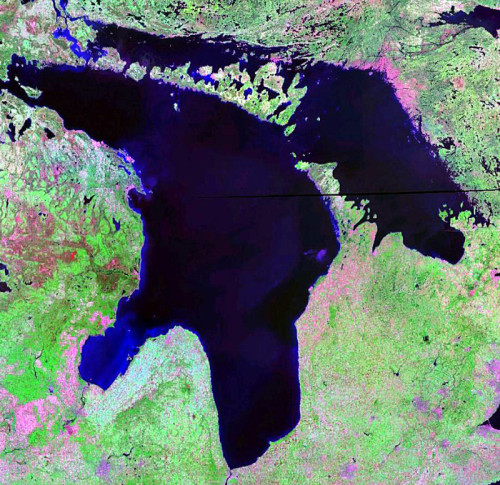GORE BAY—As is the case in many areas of the province and along the Great Lakes, the Town of Gore Bay will need to do something to alleviate the problem with decreasing levels of water in its harbour-marina.
“With the water levels being so low, we are going to have to look at whatever options we can to compensate for this, due to the problems the low levels have caused,” said Gore Bay Mayor Ron Lane in an interview with the Recorder last Friday.
The Recorder has learned water levels in Gore Bay have gone done about 36 inches or well over one foot from the same time last year.
“Obviously we have issues with low water, as everyone in the North Channel and Georgian Bay is experiencing,” said Mr. Lane. He explained, “we had to take steps to make sure some of our docks close to the shore would be secured, but be allowed to float a little further out in the bay because of the potential damage to them with low water.”
Mr. Lane pointed out there are also problems with low water at the town launch ramps and it makes it difficult for boaters to get in and get gas at the town marina.
“We will have to look at options to fix the problems once we get to next spring and see how low the water levels are,” continued Mr. Lane. He said dredging would be a last resort option, due the potential costs involved.
The Sault Star, in its October 31, 2012 edition, published an article noting that experts blame the weather for Great Lakes water levels having decreased. It was noted experts predict that Lake Michigan-Huron could hit historical low water levels within six months if dry and warm weather conditions continue.
Other water levels on the Great Lakes are also lower than average, but not expected to reach historic lows through the early part of 2013, the US Army Corps of Engineers reports.
All of the Great Lakes are currently below their average levels in October and all are lower than levels recorded last year at the same time. Rainfall, runoff and evaporation are the three major components of the Great Lakes water supply, the Star quoted Keith Kompoltowicz, of the Corps of Engineers as saying.
August and September were the driest months ever recorded in the Lake Superior and Lakes Michigan-Huron and this is a part of the water level problem, Mr. Kompoltowicz told the Star. He pointed out that in 2011, areas around the Great Lakes received abnormally low snowfall levels, followed by a very dry and warm 2012 summer. The forecast suggests that continued dry spells could mean record low levels in the Great Lakes.
As well as the natural causes noted as reasons for decreasing water levels, the Star article pointed out dredging projects in the St. Clair River are also believed to have impacted the weather levels and studies suggest that the total impact on Lake Michigan-Huron indicate a 10 to 16 inch drop in water levels over the past 150 years, John Allis, chief of the Great Lakes Hydrology with the Corps of Engineers told the Star.
Mr. Kompoltowicz also indicated in the Star article, if there is not a lot of snow or a typical winter this year, water levels are likely to stay low in the Great Lakes and low records could be set.
“My initial thought is they are blaming the situation mostly on natural causes, but a major cause is man made manipulation of the lakes, especially at the St. Clair River with two billion gallons of water being diverted to Chicago every day,” said Mike Wilton of Algonquin EcoWatch.
“And how come when we had the heavy rains the levels didn’t go up?” asked Mr. Wilton. “The levels never go down the most until Labour Day, and you have to wonder if its coincidence that the levels go down once the cottagers go home for the season.”
And you can add Simcoe North MP Bruce Stanton to the growing list of those who say action must be taken to restore water levels in Georgian Bay and Lake Huron.
Mr. Stanton met with MPs and municipal representatives in the Simcoe area along with the Minister of the Environment Peter Kent on October 2 to discuss the persistently low water levels on and the actions that can and should be taken to address them.
“It’s one of several meetings I will be undertaking to raise attention to the growing problem of lower water levels in Georgian Bay and Lake Huron,” Mr. Stanton told the Recorder. “Low water levels affect so much, residents, cottage owners, businesses, shipping, recreation, the economy and much more. Something has to be done.”
“It’s a real pickle we’re in,” siad Mr. Stanton. “According to the International Joint Commission (IJC), 80 percent of the cause for low water levels is out of our hands. They’ve ascertained glacial adjustments and hydro climatic changes account for a lot of this. However, there is at 20-25 percent that we can act on to increase water levels, including the present diversion of water at the St. Clair River. There are things that can be done to help stem the problem and we need to get the governments to look into these options.”
Mr. Stanton said in a release after the October 2 meeting, “the mayors were open and frank about the risk to the environment and economy of the Georgian Bay Region being imposed by continued, historically low water levels. I support their efforts and will continue to advance their messages to the Government of Canada.”





